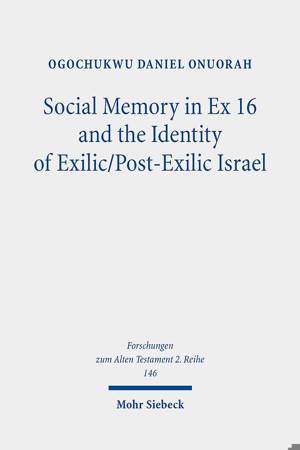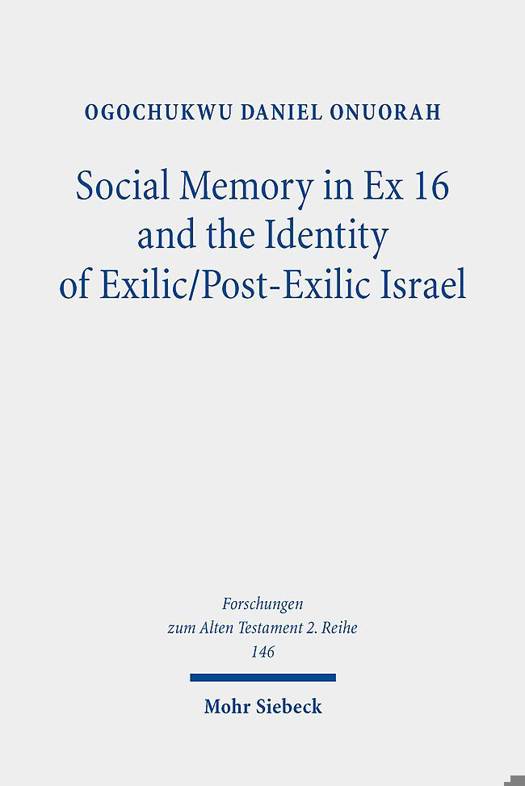
- Afhalen na 1 uur in een winkel met voorraad
- Gratis thuislevering in België vanaf € 30
- Ruim aanbod met 7 miljoen producten
- Afhalen na 1 uur in een winkel met voorraad
- Gratis thuislevering in België vanaf € 30
- Ruim aanbod met 7 miljoen producten
Zoeken
Social Memory in Ex 16 and the Identity of Exilic/Post-Exilic Israel
Ogochukwu Daniel Onuorah
€ 104,45
+ 208 punten
Omschrijving
The destruction of the Temple and the humiliation of the exile not only shook the foundations of Israel's pride as God's chosen people, but also brought about the danger of losing their identity as a people. To survive this, the people had to develop and highlight an identity-reinforcing theology built upon the collective memory of their constitutive past. Ogochukwu Daniel Onuorah applies the tools of the social memory theory to the exegetical analysis of Ex 16, an approach which necessarily entails both synchronic and diachronic inquiries. In six chapters, the author argues that the collective memory of the manna-experience as recounted in Ex 16 served as a socio-theological tool of identity-preservation in the difficult exilic/early post-exilic period. Succinctly noted also are the implications of this for the discussion on the composition of the Pentateuch.
Specificaties
Betrokkenen
- Auteur(s):
- Uitgeverij:
Inhoud
- Aantal bladzijden:
- 336
- Taal:
- Engels
- Reeks:
- Reeksnummer:
- nr. 146
Eigenschappen
- Productcode (EAN):
- 9783161624063
- Verschijningsdatum:
- 1/10/2023
- Uitvoering:
- Paperback
- Formaat:
- Trade paperback (VS)
- Afmetingen:
- 157 mm x 19 mm
- Gewicht:
- 820 g

Alleen bij Standaard Boekhandel
+ 208 punten op je klantenkaart van Standaard Boekhandel
Beoordelingen
We publiceren alleen reviews die voldoen aan de voorwaarden voor reviews. Bekijk onze voorwaarden voor reviews.











